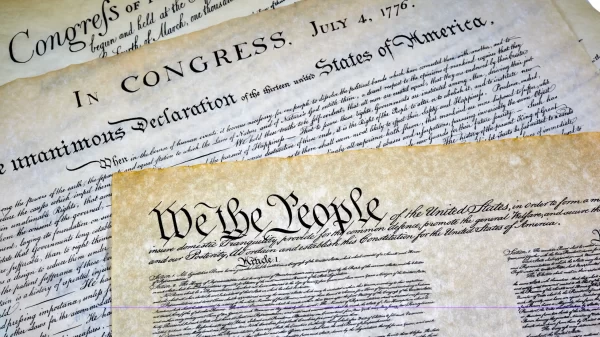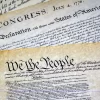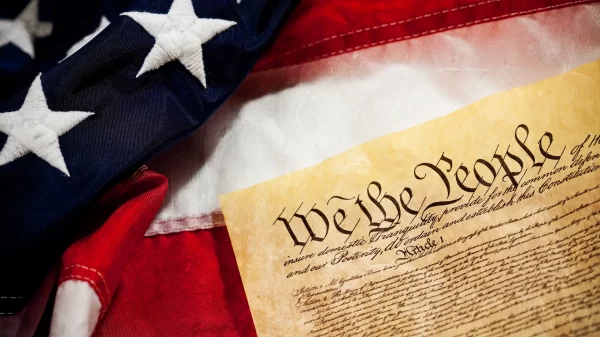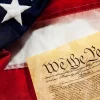By Sam McLure
Alabama Political Reporter
“One who is greedy stirs up strife . . .”
Solomon
“The World is One Big Whorehouse”
Greed in politics. Everyone knows it’s there. A reporter’s favorite hobby is exposing a politician’s hypocritical greed. Yet, tracing the ways of greed in politics is like tracking a snake in a boulder field. Its trail is elusive, and the more you hunt it, the more it seems to hunts you. In fact, greed, like lust, seeks to daily corrupt all of our motives and actions.
The Apostle Paul zoned-in on the severity of greed, when he said that those whose lives are marked by it cannot “inherit the Kingdom of God.” John Owen, that political firebrand of the English Parliament explained that, “[t]here is nothing that the Scripture doth more severely condemn, nor denounce more inevitable punishment unto” than greed.
When the wild man of the Protestant Reformation, Martin Luther, spoke on greed, he held no punches: “The world is one big whorehouse, completely submerged in greed,” where the “big thieves hang the little thieves.” Jesus himself reserved his harshest words for the political rulers of his day, the Pharisees, who loved to look polished on the outside, yet “inside [were] full of greed and wickedness.”
Diagnosing or identifying greed-in-action is a daunting task. “Greed nowadays has come to be viewed as talented, smart, careful stewardship,” and this has led as well to “sin in general [being] dressed up to look like virtue and not vice.”
David Mathis, from Desiring God ministries, defines greed as “our inordinate desire, our excessive love, for wealth and possessions, for money and the things money can buy — and even for self-esteem, security, status, and power.”
While the accumulation or possession of material wealth, power, and prestige are never condemned in Scripture, what is condemned is obsession with them, and willingness to violate the rights of others to get more. Rev. Jeph Guinan of Cornerstone Presbyterian Church explains that, “greed is never satisfied and always afraid. The one thing the person with lots of money and power wants is more money and power. And, the one thing the person with lots of money and power is afraid of is, losing their money and power. They will do anything to anyone to avoid such loss. Those in power will manipulate the system to any end in order to maintain AND GROW their power and financial status.”
Greed in Politics is No Surprise
It comes as no surprise then, that greed is present in politics. Because greed, in varying degrees, is present in every person’s heart, and must there be personally combatted, the most difficult question of government is thus how to restrain greed in politics. To this end, the founders of our peculiar American government proposed a Constitution that, if adhered to, would present the most effective vehicle, conceived by man, to restrain greed in politics.
George Washington, skeptical that the Constitution could do just that, restrain greed in politics, lamented that if the American people “would not do what the Constitution called on them to do, the government would be at an end, and must then assume another form.” What would lead a political leader to fail to do what the Constitution called on them to do? What would lead them to violate the bounds of the Constitution, set in party by the 10th Amendment, to gain more power, money, or prestige?
In short, the answers is greed.
Four Principles of Greed Politics
In the 1840’s U.S. Senator Calhoun observed realities in government that are still true today:
“I have no doubt from what I daily see that our whole system is rapidly becoming a mere money-making concern to those who have the control of it.” And that “every feeling of patriotism is rapidly sinking into a universal spirit of [greed].”
Calhoun went on to observe that both parties are fundamentally at odds, not over social issues of justice, mercy, and equity, but over control of the government’s tax revenue:
“The Federal Government is no longer under the control of the people, but of a combination of active politicians who are banded together under the name of Democrats or Whigs. And whose exclusive object is to obtain the control of the honors and emoluments of the government. They have the control of the almost entire press of the country and constitute of vast majority of Congress and of all the functionaries of the Federal Government. With them a regard for principle or this or that line of policy is a mere pretext. They’re perfectly indifferent to either and their whole effort is to make up on both sides such issues as they may think for the time the most popular, regardless of truth or consequences.”
Let’s pause to highlight several of Calhoun’s observations. As far back as 1845, one of America’s greatest political minds[1] observed four principles of greed in politics that are still true today:
- Interests of greed, “business interests,” have hijacked the whole political system;
- The labels of the two dominant parties (Democrat and Republican, today) are really just manipulative mantles worn by this band of “active politicians” who are voraciously seeking benefit and control of the tax revenue;
- This cohort of greedy “active politicians” are so powerful as to control most of the Government and the media; and
- Most importantly, this cohort of greedy snakes manipulates the populous with social issues, in order to gain favor and stay in power.
These four observations of greed in politics are just as true today as they were in 1845.
“The Most Dangerous Power Known To Man”
Rep. David Crocket observed in the 1830’s that “the power of collecting and distributing money at pleasure is the most dangerous power known to man.” Crocket was notable in resisting the urge of the Federal Government to dispense with tax revenue in a manner that surpassed those powers delegated to them by the States – no matter how virtuous the cause may present.
The allure of controlling ill-gotten tax revenue of government was exponentially magnified with the facade-passing of the 16th Amendment in 1913 (not to mention its surreptitious implementation) and the shadowy Federal Reserve the same year. 1913 was the culmination of four generations of work by the Greed Party; 1913 was the year that these “active politicians” could avail themselves of virtually unlimited money and power from the “whole system,” driving it deeper into a “mere money-making concern.”
The Puppet Show
This essay began with a quote from an ancient Middle-Eastern ruler, Solomon, “A greedy man stirs up strife.” What Calhoun and others have observed is that the conflict between the two-party system, the Republicans and the Democrats, is a farce – a puppet show. The Greed Party “stirs up strife,” in order to gain the advantage of the tax revenue.
Certainly there are a few people in positions of power within the Republican Party who genuinely care about “x, y, z” issue; and certainly there are a few people in power within the Democratic Party who genuinely care about “a, b, c” issue. However, the far more powerful force behind both parties is the same: the Greed Party. The Greed Party pulls the social-issue strings of both parties like a puppet master.
The great trap of the Greed Party is that whatever noble goal is attained by a Republican politician or a Democratic politician, only serves to fuel the Greed Party’s cupidity. Many politicos have theorized that the Republican Party’s “Conservative” brand – including the pro-life, traditional marriage, and religious liberty platform – was created by the Greed Party in order to garner enough votes to gain control of the tax revenue. The same criticism can be levied against the Democratic Party’s “Progressive” brand – including criminal justice reform, drug-policy reform, and civil rights initiatives.
What must emerge is a solution, not within the system, but without the system. A third party must emerge whose strings are not pulled by the Greed Party. A third party must emerge whose fight for political good is not directed at opposition to the Republicans or to the Democrats, but rather directly at the serpentine Greed Party itself.
For the Noble of Heart in Politics
Scottish preacher, John Knox, observed that “You are working against your king just as much if you allow him to be a tyrant as if you oppose him.” For the noble of heart in politics, for those not ensnared in the trappings of the Greed Party, for those to whom it is not too late, I challenge you to consider this – Do you want you blood, sweat, and tears to be played like a puppet master for the fulfillment of the Greed Party’s own selfish ambitions? Is your work within the two-party system allowing your government to continue to be a tyrant?
The maxim that “A greedy man stirs up strife” is only half the proverb. The second half presents the stark contrast for us to consider today, “the one who trusts in Jehovah will be enriched.” True riches do not come from creating strife and profiting from it. True riches come from the peace of apply Jehovah’s wisdom.
In Parts II and III we plan to examples of greed in Alabama politics, and potential solutions.
[1] I say this with complete repudiation of his grotesque promotion of the American slave trade. I lament that he did not equally spend his intellect on eradication of this enterprise. There are no more heroes, but Christ. To quote any man, is to risk “guilt by association.” I hope the reader will be generation with that judgment here.




















































